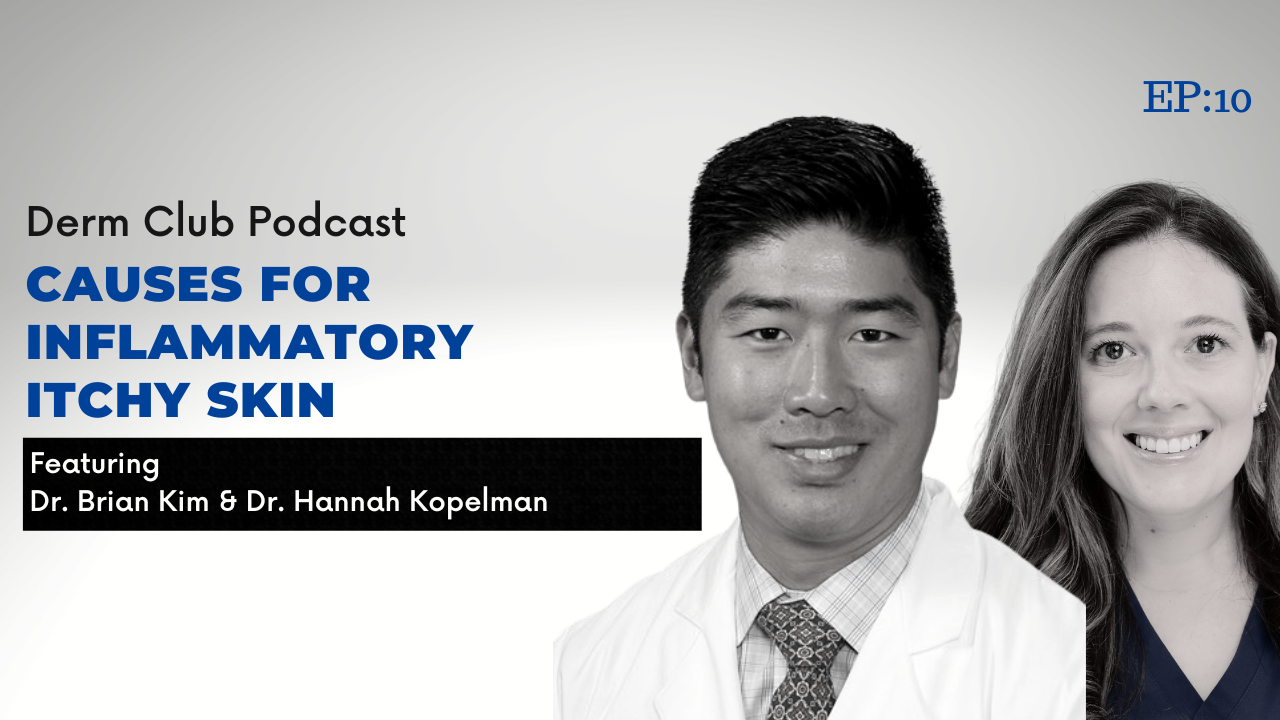As your host, Dr. Hannah Kopelman, I had the pleasure of welcoming Dr. Brian Kim to the Derm Club podcast, where we embarked on a fascinating journey into the world of itch and inflammation. Dr. Kim is a renowned dermatological researcher whose expertise spans dermatology, immunology, and neuroscience. He has made significant contributions to our understanding of the itch-scratch cycle and its root causes, offering valuable insights for dermatologists and the general public alike.
During our conversation, we delved into the various factors that trigger itch, including external stimuli like chemicals, mechanical stimulation, and temperature changes. We also explored interoception, a lesser-known type of itch caused by internal processes. Interestingly, itch severity does not always align with the severity of a clinical disease, and the relationship between itch and disease manifestation remains a mystery.
Historically, itch was seen as a form of pain. However, recent research has uncovered distinct molecular and cellular pathways for itch and pain, indicating that these sensations are separate, parallel tracks. We discussed how studying itch biology might shed light on other forms of irritability, such as cough reflex, bowel irritability in inflammatory diseases, and bladder irritability in conditions like interstitial cystitis.
We also addressed the common observation that itch tends to intensify at night or during periods of inactivity. This phenomenon may be attributed to a lack of distraction or stimulation, as well as the circadian rhythm’s influence on itch perception. Cortisol levels, which drop at night, also play a role in increasing itch sensation. Antihistamines are widely used to treat itch, but their effectiveness varies from person to person. We emphasized the importance of exploring alternative treatment options and considering each patient’s unique circumstances.
Our discussion highlighted the impressive growth in itch research over recent years. New insights have emerged regarding the neurobiology, molecular pathways, and potential treatments for itch. As researchers continue to investigate the complexities of itch, our understanding of this condition will deepen, offering new hope for patients who suffer from itch and skin inflammation.
Throughout the podcast, we further explored the itch-scratch cycle and its vicious nature, especially in conditions like atopic dermatitis or prurigo nodularis. We examined how scratching initially provides relief, but can also damage the skin barrier and release various itch-triggering factors. In some cases, nerve fibers that typically suppress itch may actually induce it due to underlying pathology, further complicating the itch-scratch cycle.
Lastly, we touched on the relationship between itch and aging. As people age, imbalances in their nervous and immune systems can contribute to itch development. Factors such as skin thinning or a weakened immune system can lead to increased itch sensation. Even those without a history of allergies or atopic conditions earlier in life may develop low-grade allergic processes as they age.
A comprehensive understanding of the complex mechanisms behind itch is essential for developing better treatments and improving the quality of life for patients with chronic itch. Recognizing the various factors that contribute to itch, such as external stimuli, internal processes, and the circadian rhythm, is crucial. As the field of itch research continues to expand, we can expect to gain a deeper understanding of itch biology and discover more effective ways to manage this challenging symptom for both dermatologists and the general public.





